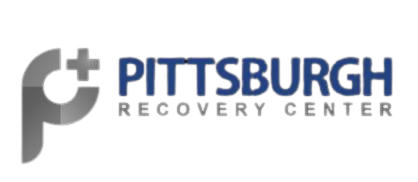Explore our outpatient drug rehab in Pittsburgh, PA.

Addiction is a complex, chronic disease that affects millions of people worldwide. It is characterized by compulsive drug or alcohol use despite negative consequences. Addiction is not a moral failing or a lack of willpower, but a brain disorder that requires professional treatment. For those struggling with addiction, seeking help is the first step towards recovery.
There are various types of addiction treatment programs available, each designed to meet different needs and preferences. Inpatient programs, also known as residential treatment, provide 24-hour care in a controlled environment. These programs are ideal for individuals with severe addiction or those who require intensive medical supervision.
On the other hand, outpatient programs offer flexibility and allow individuals to receive treatment while continuing with their daily responsibilities. These programs are suitable for individuals with mild to moderate addiction who have a stable support system at home.

Partial hospitalization is our highest level of care. Partial Hospitalization is a structured Substance Abuse treatment program that runs for 5 days a week 4-6 hours a day.

In IOP, you attend therapy, learn to maintain sobriety, and develop a supportive peer network to begin transitioning into a lifelong recovery program. IOP is 3-5 days a week, 3 hours a day.

Outpatient therapy is an ideal option for people who are motivated to maintain abstinence. Outpatient is 1-2 days a week, 2-3 hours a day.
An outpatient program is a type of addiction treatment that allows individuals to receive therapy and support while living at home. Unlike inpatient programs, which require individuals to reside at a treatment facility, outpatient programs provide scheduled treatment sessions that allow individuals to return home afterward.
Outpatient programs in Pittsburgh offer a range of services, including individual counseling, group therapy, and medication management. These programs provide a stepping stone towards sobriety, helping individuals develop the necessary skills and coping mechanisms to maintain long-term recovery.
Outpatient addiction treatment offers several benefits that make it an attractive option for many individuals. Firstly, it provides flexibility, allowing individuals to continue with their daily responsibilities such as work, school, or caring for their families. This flexibility is crucial for individuals who cannot put their lives on hold to enter an inpatient program.
Additionally, outpatient programs are often more affordable than inpatient treatment, making them accessible to a wider range of individuals. The cost of residential treatment can be prohibitive for many, while outpatient programs offer a more cost-effective alternative without compromising the quality of care.
Outpatient programs also provide a supportive community where individuals can connect with others who are going through similar experiences. This sense of community and understanding can be invaluable during the recovery process, providing a network of support and encouragement.
Pittsburgh, known for its thriving healthcare industry, is at the forefront of transforming addiction treatment through innovative outpatient programs. These programs combine evidence-based practices with personalized care to address the unique needs of each individual.
The outpatient programs in Pittsburgh prioritize holistic approaches to addiction treatment, recognizing that recovery is not just about abstaining from substance use but also about addressing underlying issues and developing healthy coping mechanisms. These programs offer a range of therapeutic modalities, including cognitive-behavioral therapy, dialectical behavior therapy, and motivational interviewing.
Outpatient programs in Pittsburgh are revolutionizing addiction treatment by providing comprehensive care that goes beyond traditional approaches. These programs focus on treating the whole person, addressing not only the addiction but also co-occurring mental health disorders and other underlying issues.
By incorporating evidence-based practices, such as medication-assisted treatment and trauma-informed care, outpatient programs in Pittsburgh are able to provide more effective and individualized treatment plans. These programs recognize that addiction is a complex disease that requires a multifaceted approach for successful recovery.
Furthermore, outpatient programs in Pittsburgh prioritize ongoing support and relapse prevention. They offer aftercare services, such as alumni programs and support groups, to help individuals maintain their sobriety long after completing the program. This focus on long-term recovery sets these programs apart and increases the chances of sustained sobriety.
Outpatient services in Pennsylvania offer a range of treatment options to cater to the diverse needs of individuals seeking recovery. These services typically include individual counseling, group therapy, family therapy, psychiatric evaluations, and medication management.
During individual counseling sessions, individuals work closely with a therapist to address the underlying causes of addiction and develop strategies for relapse prevention. Group therapy provides a supportive environment where individuals can share their experiences, learn from others, and build a sense of community.
Family therapy is an essential component of outpatient services, as addiction often affects not only the individual but also their loved ones. By involving family members in the treatment process, outpatient programs in Pennsylvania help repair relationships and strengthen the support system.
Therapy plays a crucial role in outpatient addiction programs, as it helps individuals understand the root causes of their addiction and develop healthy coping mechanisms. Cognitive-behavioral therapy (CBT) is a commonly used approach that focuses on identifying and changing negative thought patterns and behaviors related to substance use.
Dialectical behavior therapy (DBT) is another effective therapy for addiction. It combines elements of CBT with mindfulness techniques to help individuals regulate emotions, improve interpersonal skills, and develop distress tolerance.
Motivational interviewing is a person-centered therapy that aims to enhance motivation for change. It helps individuals explore their ambivalence towards recovery and build confidence in their ability to overcome addiction.
We are an in-network provider for Highmark, Blue Cross Blue Shield of Pennslyvania, UPMC, and Geisinger. We accept most PPO & POS insurance plans.










When choosing an outpatient program in Pittsburgh, it is important to consider several factors. Firstly, ensure that the program offers evidence-based treatment modalities and a multidisciplinary approach. Look for programs that provide individualized care and have a track record of success in helping individuals achieve and maintain sobriety.
It is also important to consider the location and accessibility of the program. Choose a program that is conveniently located and offers flexible scheduling options to accommodate your daily responsibilities.
Additionally, inquire about the program’s aftercare services and support. A comprehensive outpatient program should provide ongoing support and resources to help individuals transition back into their daily lives and maintain their sobriety.

Outpatient programs in Pittsburgh are transforming addiction treatment by providing comprehensive, personalized care that addresses the unique needs of each individual. These programs prioritize holistic approaches, evidence-based practices, and ongoing support to increase the chances of successful recovery.
We're Available 24/7
If you or someone you know is struggling with addiction, consider exploring the outpatient programs in Pittsburgh. With their innovative approaches and commitment to long-term sobriety, these programs offer a new path to a healthier, happier life.
If you or a loved one is seeking addiction treatment, contact an outpatient program in Pittsburgh today to embark on your journey to sobriety.
